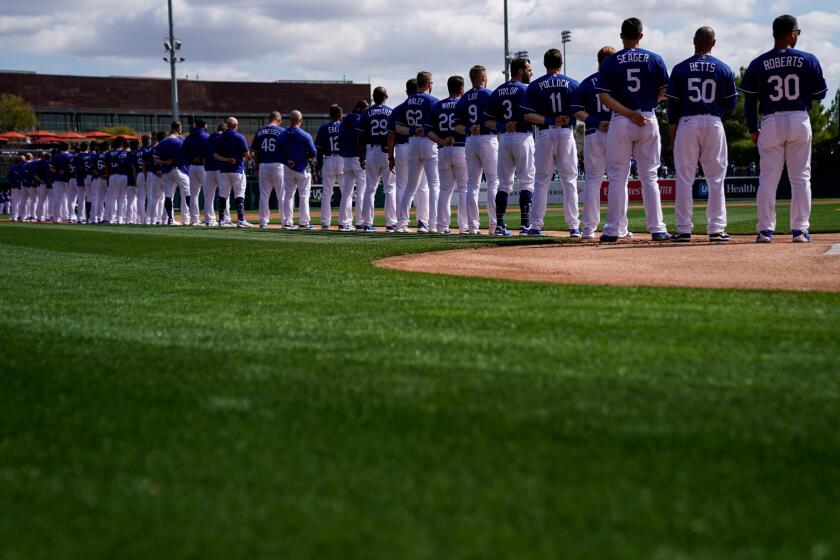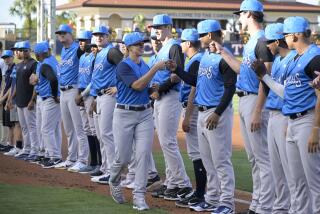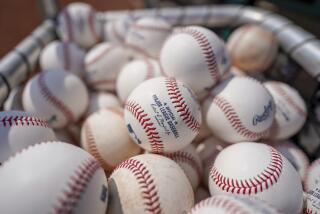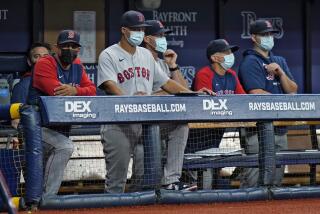MLB safety protocols for potential season: no high-fives, plenty of COVID-19 tests
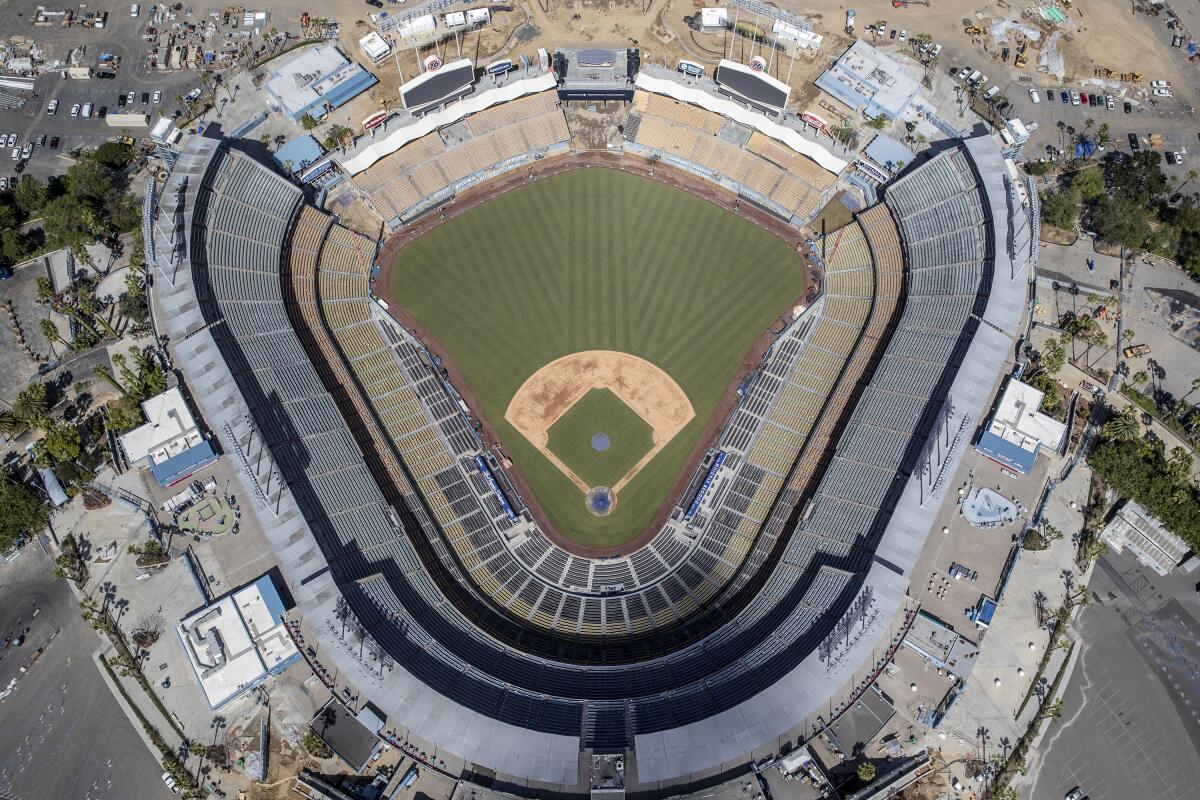
- Share via
There will be no spitting in baseball this season. And no high-fives, fist-bumps, hugs, smokeless tobacco and the chewing of sunflower seeds.
Something there will be an abundance of if Major League Baseball can reach an agreement with players on salaries and launch an abbreviated 82-game season in empty stadiums in early July: COVID-19 tests.
That much is clear from the proposed health and safety protocols for avoiding the spread of the coronavirus in a 67-page document MLB sent to the players union Friday night, a copy of which was obtained by The Times.
“I’m hopeful we will have major league baseball this summer,” commissioner Rob Manfred told CNN Thursday night. “But those plans are dependent on what the public health situation is, and us reaching the conclusion that it will be safe for our players and other employees to come back to work.”
The MLB “2020 Operations Manual,” which is subject to union approval, calls for a maximum of 50 players per club to report to a three-phase spring training in mid-June — pitchers and catchers, followed by position players and a limited number of intrasquad and exhibition games. Players would be in small groups, with workouts staggered throughout the day.
Stadiums would be limited to “essential personnel,” 100-150 people broken into safety tiers, with players, a manager, eight uniformed coaches, two bullpen catchers, two athletic trainers, two team physicians, a head strength-and-conditioning coach and umpires in Tier 1.
Tier 2 would consist of clubhouse staff, additional coaches, traveling staff, front office executives, public relations officials, translators, video and replay personnel and a head groundskeeper. Tier 3 would consist of individuals who perform essential event services but do not require close contact with Tier 1 individuals.
Social distancing would be encouraged in the clubhouse, with lockers spaced six feet apart. Showering would be discouraged at club facilities. Saunas, steam rooms, hydrotherapy pools and cryotherapy chambers would be prohibited.
The use of indoor batting cages would be discouraged. Pitchers would use a personal set of baseballs during bullpen sessions. Exchanging of lineup cards and mound visits would be prohibited.
Players would be encouraged to remain in team hotels on the road, and the use of private transportation would be discouraged.
“The careless actions of a single member of the team places the entire team (and their families) at risk,” the document says. “Teams should agree on their own off-field code of conduct for themselves and family members to minimize the risk to the team.”
There’s still time to vote in the Golden Greats: The I-5 Series.
Players, coaches and umpires would be tested several times a week for the coronavirus, mostly using saliva tests, and occasional antibody tests. They would undergo temperature checks and symptom screenings twice a day.
The Sports Medicine Research and Testing Lab in Salt Lake City, which MLB uses for minor league drug testing, would be converted into a COVID-19 testing site, “and the lab has assured us of a 24-hour turnaround on all of our tests,” Manfred said.
The document said MLB would offer free diagnostic and antibody/serology testing for family members, healthcare workers and other first responders in the clubs’ home cities as a public service.
Players, coaches and other essential personnel would conduct daily home screenings. Any individual who reports COVID-19 symptoms or a temperature above 100 degrees would be prohibited from entering a club facility and be directed to self-isolate.
Those who test positive would be immediately quarantined, though not necessarily for 14 days. While in isolation for a positive test, individuals would receive remote care from club medical staff, as well as regular follow-up testing.
Potentially playing games in the middle of the scorching Arizona summer is just one of the issues MLB will need to figure out before the season starts.
“Our experts are advising us that we won’t need a 14-day quarantine,” Manfred said. “They will be quarantined until they have two negative tests over a 24-hour period.
“We hope that we will be able to convince the vast majority of our players that it’s safe to return to work,” Manfred said. “At the end of the day, however, if there are players with health conditions or just their own personal doubts, we would never try to force them to come back to work. They can wait until they feel ready to come.”
More to Read
Go beyond the scoreboard
Get the latest on L.A.'s teams in the daily Sports Report newsletter.
You may occasionally receive promotional content from the Los Angeles Times.

